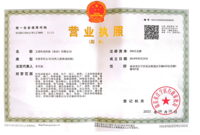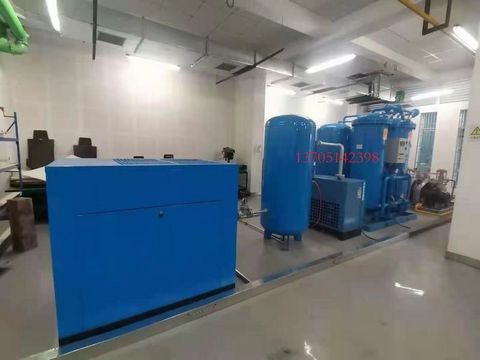Description
The food industry uses nitrogen generators on a large scale. Their core purpose is to leverage nitrogen (N₂)'s inert, non-toxic, odorless, low-cost, and readily available properties to address key challenges in food processing, packaging, and storage: preventing oxidative spoilage, inhibiting microbial growth, preserving physical form, and extending shelf life. Specific application scenarios and reasons are as follows: Core Functions and Benefits: Inert Gas Protection (Modified Atmosphere Packaging, MAP): Displaces oxygen to prevent oxidation: Oxygen is a major cause of food spoilage, leading to: rancidity (producing a rancid odor); decomposition of vitamins and pigments (e.g., browning of fruit, discoloration of meat); and loss of flavor and aroma. Nitrogen-Filled Packaging: High-purity nitrogen (typically ≥99.5% or 99.9%) is injected into food packaging containers (bags, boxes, cans, bottles), displacing oxygen (reducing residual oxygen levels to 1%-3% or even lower), creating a low-oxygen or oxygen-free environment and significantly slowing oxidation reactions. Inhibits the growth of aerobic microorganisms: Spoilage microorganisms such as bacteria, mold, and yeast mostly require oxygen to reproduce. Nitrogen filling reduces oxygen concentration, effectively inhibiting the activity of these microorganisms and extending the microbial safety period of food (especially critical for foods stored at refrigerated or room temperature). Physical protection: For puffed foods (potato chips, shrimp crackers, etc.), coffee powder, milk powder, crackers, etc., nitrogen is filled into the packaging to create an "air pocket" that acts as a cushion, preventing product crushing during transportation and stacking. This maintains the product's physical integrity and crisp texture. (Note: Bulking of this type of packaging is normal and does not constitute "gas deception"). Replaces chemical preservatives: Preserving food through physical means (gas exchange) can reduce or replace the use of antioxidants and preservatives, meeting consumer demand for "clean label" and naturally healthy foods. Extends shelf life: Combining these benefits (anti-oxidation, antibacterial, and physical protection), nitrogen-filled packaging can significantly extend the shelf life of food, reduce waste, and expand sales. Examples of key application scenarios: Snacks and Baked Goods: Chips, nuts, popcorn, cookies, and pastries: Prevent oil oxidation, maintain crispness, and prevent breakage. Dairy Products: Milk powder and cheese: Prevent fat oxidation and clumping. Coffee and Tea: Coffee beans/powder, tea bags/loose tea: Lock in aroma, prevent flavor loss, and prevent oxidative deterioration. Cooking Oil: Nitrogen is added to the headspace of oil drums during filling to isolate oxygen and delay rancidity. Meat and Delicatessens: Fresh meat, ham, and sausage: Maintain a bright red color (myoglobin is less susceptible to browning) and inhibit bacterial growth. Fruit and Vegetable Products: Cut fruit and salads: Slow down enzymatic browning and respiration, extending freshness. Beverages and Alcoholic Beverages: Juice, beer, and wine: Nitrogen is added to containers before filling to remove oxygen and preserve flavor and color. Grains and Powders: Flour, seasonings, and protein powder: Prevent moisture, clumping, and insects. Why choose a nitrogen generator instead of purchasing nitrogen? Cost-Effectiveness: Food plants consume large and continuous volumes of gas. On-site nitrogen generation (typically using PSA pressure swing adsorption or membrane separation technology) offers significantly lower long-term operating costs than the frequent purchase and transportation of liquid nitrogen or high-pressure nitrogen cylinders. Supply Security and Stability: This eliminates the risk of external supply chain disruptions (transportation delays, gas shortages), ensuring continuous production line operation. On-demand, Flexible and Controllable Production: Gas production volume and purity can be adjusted in real time to match the production rhythm (food-grade nitrogen purity is typically required to be 99.5% to 99.9%).
- Nitrogen generator for food industry
Production Capacity:
1500
Delivery Timeframe:
Within 30 Days
Incoterms:
EXW - Ex Works
FOB - Free on Board
Packaging Details:
wooden
More about
Enul Electromechanical Technology (Nanjing) Co., Ltd
10-50
Employees
500K - 1M
Sales volume (USD)
Not informed
Year
Established
Business type
- Industry / Manufacturer
Keywords
- nitrogen generaor
- oxygen generator
- separatation equipment
- high pressure piston air compressor
Contact and location
-
Scarlett ********
-
+86 8********
-
南京 / jiangsu | China






